 W
WGeorge Robert Ainslie (1776–1839) was a Scottish general of the British Army, with a short lived and controversial career in the Caribbean, a Lt. Gov. of Cape Breton, and noted for his coin collecting pursuits.
 W
WField Marshal Sir Nigel Thomas Bagnall, was Chief of the General Staff, the professional head of the British Army, from 1985 to 1988. Early in his military career he saw action during the Palestine Emergency, the Malayan Emergency, the Cyprus Emergency and the Indonesia–Malaysia confrontation, and later in his career he provided advice to the British Government on the future role of Britain's nuclear weapons.
 W
WBernard Granville Baker was a British soldier and painter specialising in military subjects. He wrote and illustrated a number of books.
 W
WErnest Frederick Beal VC was an English recipient of the Victoria Cross, the highest and most prestigious award for gallantry in the face of the enemy that can be awarded to British and Commonwealth forces.
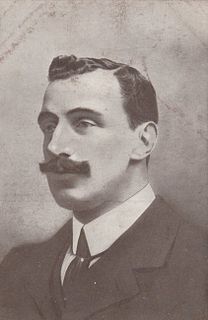 W
WThe Honourable Sir William Gervase Beckett, 1st Baronet, born William Gervase Beckett-Denison, was a British banker and Conservative politician.
 W
WSecond Lieutenant Donald Simpson Bell, VC was an English school teacher and professional footballer. During World War I he was awarded the Victoria Cross for actions during the Battle of the Somme in mid-1916.
 W
WGeneral Sir Edward Stanislaus Bulfin was a British general during World War I, where he established a reputation as an excellent commander at the brigade, divisional and corps levels. He was most noted for his actions during the First Battle of Ypres, when he organized impromptu forces to slow down the German assault.
 W
WJohn Coates was a leading English tenor, who sang in opera and oratorio and on the concert platform. His repertoire ranged from Bach and Purcell to contemporary works, and embraced the major heldentenor roles in Richard Wagner's operas. For more than 40 years, with only a four-year interruption for military service during World War I, he overcame the limitations of a voice that was not naturally large by impressing listeners with his intense artistic expression, lively diction, musical versatility and memorable stage presence.
 W
WGustavus Hamilton Blenkinsopp Coulson, was a British Army officer and an English recipient of the Victoria Cross, the highest decoration for gallantry "in the face of the enemy" awarded to members of the British and Commonwealth armed forces.
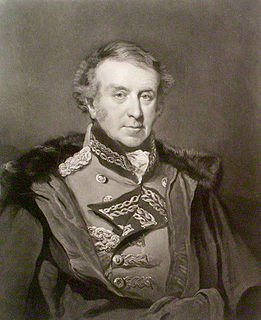 W
WGeneral Sir Hew Whitefoord Dalrymple, 1st Baronet was a Scottish general in the British Army and Governor of Gibraltar.
 W
WGeneral Francis Richard Dannatt, Baron Dannatt, is a retired senior British Army officer and member of the House of Lords. He was Chief of the General Staff from 2006 to 2009.
 W
WErasmus Darwin MA was an English businessman and soldier, killed in the First World War. He was the grandson of the naturalist Charles Darwin.
 W
WSir Walter Farquhar, 1st Baronet was a prominent Scottish physician of the late eighteenth and early nineteenth century, whose clientele included many of the leading figures of the day, including the Prince of Wales and the Prime Minister William Pitt. Born in Garioch, Farquhar abandoned his medical studies at King's College, Aberdeen to join the British Army as a surgeon during the Seven Years' War. He later worked as an apothecary in London and qualified as a physician, becoming popular with royalty and politicians and receiving a baronetcy for his services.
 W
WSir John Marcus Fox MBE was a British Conservative Party politician. He served as the Member of Parliament (MP) for Shipley from 1970 to 1997. He was chairman of the 1922 Committee directly overseeing candidate selection for the Conservative Party in the 1979 General Election.
 W
WGeneral Sir Harold Edmund Franklyn was a British Army officer who fought in both World War I and World War II. He is most notable during World War II for his command of the 5th Infantry Division during the Battle of France in May/June 1940.
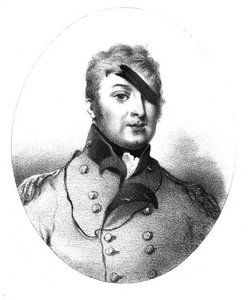 W
WLieutenant General Samuel Graham was a British Army officer who commanded the 27th Enniskillen Regiment during the Anglo-Russian invasion of Holland.
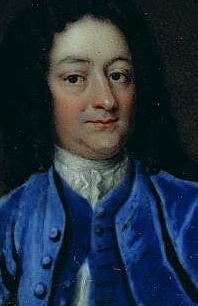 W
WLieutenant General Henry Hawley was a British army officer who served in the wars of the first half of the 18th century. He fought in a number of significant battles, including the Capture of Vigo in 1719, Dettingen, Fontenoy and Culloden.
 W
WDavid Philip Hirsch VC was a British Army officer during World War I and recipient of the Victoria Cross, the highest and most prestigious award for gallantry in the face of the enemy that can be awarded to British and Commonwealth forces.
 W
WBasil Willett Charles Hood was a British dramatist and lyricist, perhaps best known for writing the libretti of half a dozen Savoy Operas and for his English adaptations of operettas, including The Merry Widow.
 W
WGeneral John Nicholas Reynolds Houghton, Baron Houghton of Richmond, is a retired senior British Army officer and former Chief of the Defence Staff (CDS) of the British Armed Forces. He was appointed CDS in July 2013, following the retirement of General Sir David Richards. He served as Commanding Officer of the 1st Battalion, the Green Howards in Northern Ireland during The Troubles and later became Commander of the 39th Infantry Brigade in Northern Ireland. He deployed as Senior British Military Representative and Deputy Commanding General, Multi-National Force – Iraq during the Iraq War. Later, he became Chief of Joint Operations at Permanent Joint Headquarters and served as Vice-Chief of the Defence Staff until assuming the position of CDS. Houghton retired from the British Army in July 2016, and was succeeded as CDS by Air Chief Marshal Sir Stuart Peach.
 W
WSir Harold Gibson Howitt, was an English accountant who had a distinguished military career during the First World War and who undertook a long series of important public service commissions. Notable among these was his report on the reorganisation of the British pig industry.
 W
WField Marshal Sir Samuel Hulse, GCH was a British Army officer. He saw his first active duty during the Gordon Riots in June 1780 before commanding the 1st Battalion of the 1st Regiment of Foot Guards at key battles of the Flanders Campaign during the French Revolutionary Wars. He also commanded the 1st Guards Brigade at a later battle and then joined the retreat into Germany during the closing stages of the Flanders Campaign. He later took part in the Anglo-Russian invasion of Holland and then returned to England to become General Officer Commanding South East District. After completing active service in the Army, he served in the household of King George IV.
Field Marshal Peter Anthony Inge, Baron Inge,, was the Chief of the General Staff, the professional head of the British Army, from 1992 to 1994. He then served as Chief of the Defence Staff before retiring in 1997. Early in his military career he saw action during the Malayan Emergency and in Northern Ireland and later in his career he provided advice to the British Government during the Bosnian War.
 W
WMajor General Henry Edward Jerome was a recipient of the Victoria Cross, the highest and most prestigious award for gallantry in the face of the enemy that can be awarded to British and Commonwealth forces.
 W
WMajor Stewart Walter Loudoun-Shand VC was a British recipient of the Victoria Cross (VC), the highest and most prestigious award for gallantry in the face of the enemy that can be awarded to British and Commonwealth forces. He was posthumously awarded the VC for his actions during an attack near the French village of Fricourt on the opening day of the Battle of the Somme.
 W
WGeneral Sir James Macdonell or Macdonnell was a Scottish officer of the British Army.
 W
WLt. Col. Charles Mawhood was a British army officer during the 18th century, most noted for his command during the Battle of Princeton.
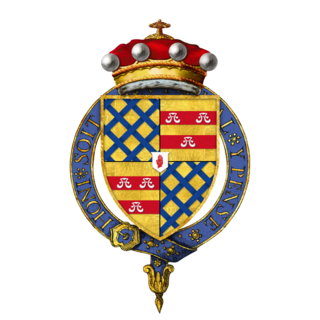 W
WColonel Michael Guy Percival Willoughby, 11th Baron Middleton, was a British peer and soldier.
 W
WMajor-General Sir (Cecil) Lothian Nicholson was a British Army officer.
 W
WOswald Constantine John Phipps, 4th Marquess of Normanby,, styled Earl of Mulgrave until 1932, was a British peer and philanthropist for blind people.
Sir Herbert Edward Read, was an English art historian, poet, literary critic and philosopher, best known for numerous books on art, which included influential volumes on the role of art in education. Read was co-founder of the Institute of Contemporary Arts. As well as being a prominent English anarchist, he was one of the earliest English writers to take notice of existentialism. He was co-editor with Michael Fordham of the British edition in English of The Collected Works of C. G. Jung.
 W
WTimothy Andrew Keith Rodber is an English former rugby union footballer who played at Number eight, flanker or lock for Northampton Saints, England, and the British and Irish Lions.
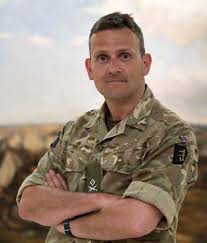 W
WMajor General Andrew Michael Roe is a senior British Army officer and is currently serving as commandant of the Joint Services Command and Staff College.
 W
WLieutenant Colonel Derek Anthony Seagrim VC was a British Army officer and an English recipient of the Victoria Cross (VC), the highest and most prestigious award for gallantry in the face of the enemy that can be awarded to British and Commonwealth forces. His VC was earned during the North Africa Campaign.
 W
WMajor (Ret) John Wilson Senior, MBE, TD, mobilised on 27 December 2001, Senior was the first member of the British Territorial Army to be deployed on operational service to Afghanistan. He is also the founder of Heroes Welcome UK, a national scheme to encourage local communities to show their open support to British and other UK-based military personnel.
 W
WGeneral Sir Francis Seymour, 1st Baronet, (1813–1890) was a British Army officer and courtier.
 W
WLieutenant Colonel Sir Francis Claude Shelmerdine was a senior officer in the Royal Flying Corps during the First World War and a civil servant working in connection with civil aviation in the post-war years. Most significantly, he was Director-General of Civil Aviation during the 1930s.
 W
WLieutenant-Colonel Windle Hill St. Hill, was an English army officer and politician in colonial Tasmania, member of the Tasmanian House of Assembly.
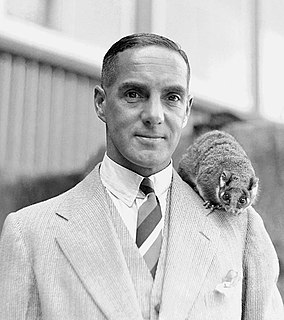 W
WHerbert Sutcliffe was an English professional cricketer who represented Yorkshire and England as an opening batsman. Apart from one match in 1945, his first-class career spanned the period between the two world wars. His first-class debut was delayed by the First World War until 1919 and his career was effectively terminated in August 1939 when he was called up for military service in the imminent Second World War. He was the first cricketer to score 16 centuries in Test match cricket.
 W
WColonel Sir Tatton Benvenuto Mark Sykes, 6th Baronet was an English traveller, Conservative Party politician, and diplomatic advisor, particularly with regard to the Middle East at the time of the First World War.
 W
WCaptain Joseph Thomas (1803–?) was a British explorer and the chief surveyor for Lyttelton, Sumner and Christchurch in New Zealand. He took up surveying after service in the British army, gaining the rank of lieutenant. In the 1840s, he explored many parts of New Zealand and worked for the New Zealand Company. This gained him employment with the Canterbury Association, which sent him to New Zealand in 1848. Thomas' role was to find a suitable site for their proposed settlement, and what became the Canterbury region with Christchurch as its capital was the result of his efforts. He was dismissed in early 1851 over quarrels with John Robert Godley, the agent of the Canterbury Association, just after the first settlers had arrived in the colony. Thomas' life after 1853 is unknown. Having allowed for Hagley Park as a generous central city green space is regarded as his major achievement, and it is his lasting legacy.
 W
WRobert Hugh Turton, Baron Tranmire, was a British Conservative Party politician.
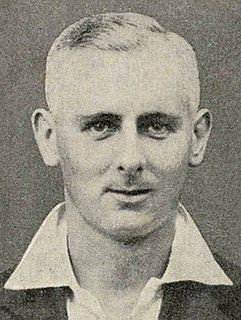 W
WHedley Verity was a professional cricketer who played for Yorkshire and England between 1930 and 1939. A slow left-arm orthodox bowler, he took 1,956 wickets in first-class cricket at an average of 14.90 and 144 wickets in 40 Tests at an average of 24.37. Named as one of the Wisden Cricketers of the Year in 1932, he is regarded as one of the most effective slow left-arm bowlers to have played cricket. Never someone who spun the ball sharply, he achieved success through the accuracy of his bowling. On pitches which made batting difficult, particularly ones affected by rain, he could be almost impossible to bat against.
 W
WOliver Cyril Spencer Watson VC DSO was an English posthumous recipient of the Victoria Cross, the highest and most prestigious award for gallantry in the face of the enemy that can be awarded to British and Commonwealth forces.
 W
WWilliam Basil Weston was an English recipient of the Victoria Cross, the highest and most prestigious award for gallantry in the face of the enemy that can be awarded to British and Commonwealth forces.
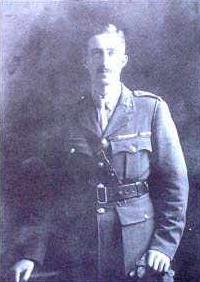 W
WColonel Archibald Cecil Thomas White was an English recipient of the Victoria Cross, the highest and most prestigious award for gallantry in the face of the enemy that can be awarded to British and Commonwealth forces.
 W
WAir Commodore John Henry Peyto Verney, 20th Baron Willoughby de Broke, MC, AFC was a British peer.
 W
WGeneral Sir Charles Wills was a professional soldier from Cornwall, who was Lieutenant-General of the Ordnance and Member of Parliament for Totnes from 1718 to 1741.
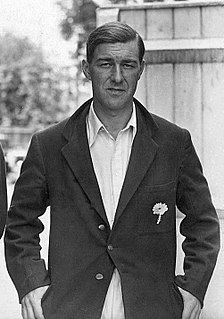 W
WNorman Walter Dransfield Yardley was an English cricketer who played for Cambridge University, Yorkshire County Cricket Club and England, as a right-handed batsman and occasional bowler. An amateur, he captained Yorkshire from 1948 to 1955 and England on fourteen occasions between 1947 and 1950, winning four Tests, losing seven and drawing three. Yardley was named Wisden Cricketer of the Year in 1948 and in his obituary in Wisden Cricketers' Almanack, he was described as Yorkshire's finest amateur since Stanley Jackson.